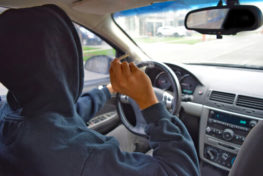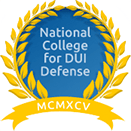
Driving Under the Influence of Marijuana Lawyers in Clifton
A person who has been charged with Driving While Under the Influence of Marijuana is prosecuted under the same law as an alcohol DWI, N.J.S.A. 39:4-50. However, while the statute is the same, the issues involved in a marijuana dwi are much different. A primary difference stems from the fact that there is no device like a breathalyzer to measure whether or not, or to what degree a driver is under the influence of Marijuana. This, as well as other factors, make driving under the influence of marijuana cases more complicated to prove than the standard DWI. This is where the exceptional experience of the attorneys on our staff can prove invaluable. Give us a call if you are facing a DWI for marijuana in Clifton, West Milford, Paterson, Hawthorn, Bloomingdale, Little Falls, Wayne or another municipality. A skilled marijuana DWI defense lawyer is available no for a free consultation at 862-203-4070.
How do the Police determine whether a driver is Under the Influence of Marijuana?
The most common method of proving a DWI in New Jersey is a breath test that measures blood alcohol content (BAC). Since this device only measures alcohol in the blood it is intoxication, it is useless for determining whether someone was driving under the influence of drugs like marijuana. Prosecutors are therefore forced to resort to other means in marijuana DWI cases. A driver with red, glassy eyes, slurred speech or who displays difficulty with fine motor control (fumbling for license, unable to shut ignition, etc.) may arouse the suspicions of an officer. Once the officer has probable cause to believe that the driver is under the influence, he may request that the driver submit to a blood or urine test. But presence of marijuana in the blood is not enough since, for example, this substance can stay in a persons bloodstream for literally weeks. What therefore needs to be established is whether the driver is “intoxicated” at the time of the stop by the marijuana. The State is required to prove that the marijuana altered the driver’s physical coordination and mental faculties as to render such a person a danger to himself as well as to other persons on the highway. To make this connection, a police officer must have some experience in determining when someone is under the influence of marijuana.
How Do You Fight a Marijuana DWI Charge?
There are several ways to attack a driving under the influence of marijuana offense. One focus of attack is the laboratory report. The state must not only establish that a sample was properly taken but also that there was documented chain of custody. The state has to provide many documents to substantiate the sample and this can prove difficult. When this documentation is not provided or is provided in an untimely manner, the laboratory report is invalid. Another way to attack the lab report is my objecting to the written report and this obligates the state to produce the laboratory scientist at trial who produced the report. Personnel is often limited and this, in addition to other factors, can cause the witness to fail to appear as necessary. The failure to appear is another basis for eliminating the evidence contained in the lab report, which is necessary to prove a marijuana DWI. Even when the results of the laboratory report are admitted into evidence, the charge can be challenged by attacking the field work of the arresting officer. For example, was the stop valid? Was there another explanation for some of the physical observations? Were the observations actually accurate at all? The point of all of this is that there are many ways to defeat a DWI based on marijuana and this may explain the success our firm has with these charges.
Marijuana DUI Charges in Passaic County NJ?
If you or a loved one is facing a marijuana DUI, contact our firm at 862-203-4070. Our former DUI prosecutors handle N.J.S.A. 39:4-50 marijuana cases in towns like Wayne, Clifton, Little Falls, West Milford, Ringwood, Wanaque, Totowa, Haledon and elsewhere in New Jersey. As always, our initial consultations are always free.








